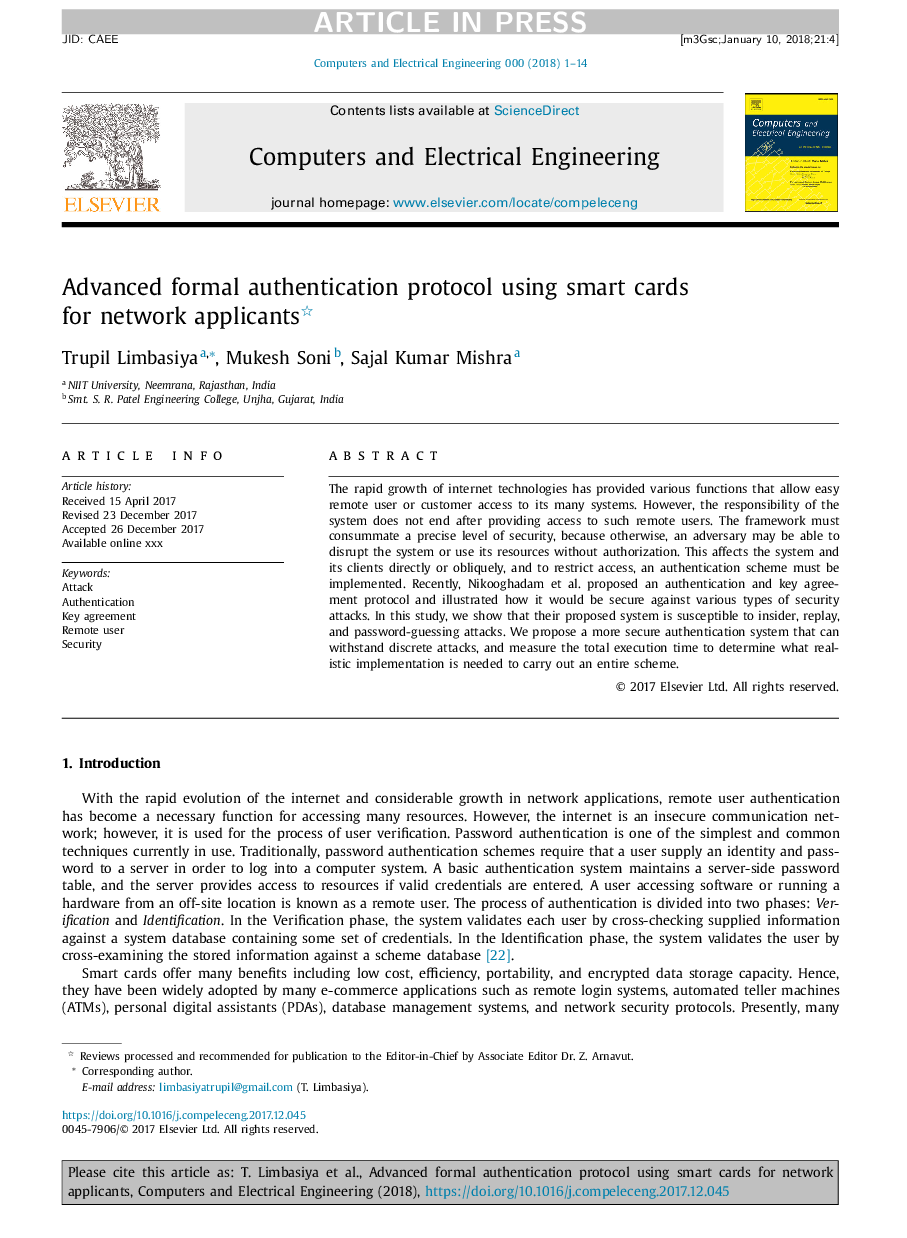| Article ID | Journal | Published Year | Pages | File Type |
|---|---|---|---|---|
| 6883464 | Computers & Electrical Engineering | 2018 | 14 Pages |
Abstract
The rapid growth of internet technologies has provided various functions that allow easy remote user or customer access to its many systems. However, the responsibility of the system does not end after providing access to such remote users. The framework must consummate a precise level of security, because otherwise, an adversary may be able to disrupt the system or use its resources without authorization. This affects the system and its clients directly or obliquely, and to restrict access, an authentication scheme must be implemented. Recently, Nikooghadam et al. proposed an authentication and key agreement protocol and illustrated how it would be secure against various types of security attacks. In this study, we show that their proposed system is susceptible to insider, replay, and password-guessing attacks. We propose a more secure authentication system that can withstand discrete attacks, and measure the total execution time to determine what realistic implementation is needed to carry out an entire scheme.
Related Topics
Physical Sciences and Engineering
Computer Science
Computer Networks and Communications
Authors
Trupil Limbasiya, Mukesh Soni, Sajal Kumar Mishra,
